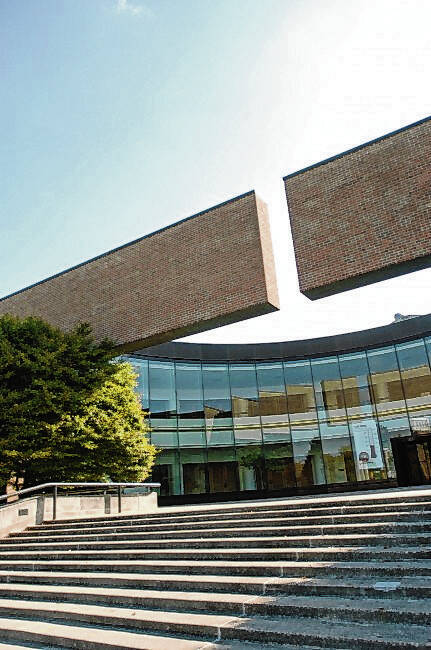A draft of zoning ordinance amendments is returning to Columbus City Council on Monday after members of the Columbus Plan Commission decided to suggest additional changes to regulations for solar farms.
The Columbus Plan Commission voted on Wednesday to send the draft back to council with the recommendation that, while commercial solar facilities should be a prohibited use in the city’s planning jurisdiction, collection and feeder lines to those facilities should be allowed as a conditional use.
The matter will be on the agenda for Monday’s council meeting, said City/County Planning Director Jeff Bergman. The commission’s vote was 8-1, with City Council Liaison Dave Bush voting against the motion.
The commission previously recommended a number of zoning ordinance changes to the council in September. The council voted in October and November to approve the changes, but with an amendment. For this reason, the matter was required to return to the commission for a vote, said Bergman.
The council’s amendment, which was proposed by Councilman Frank Miller, removed a section listing commercial solar energy systems (CSES) as a conditional use in the Agriculture: Preferred (AP) and Agricultural: General Rural (AG) zoning districts.
Planning officials define CSES as systems that capture and convert solar energy into electricity for the primary purpose of selling this energy for use in locations other than the site at which it is generated. At present, CSES are a conditional use in the AP district and are prohibited elsewhere, Bergman said in a previous interview.
Per the city’s zoning ordinance, any use that is not listed as a permitted use or a conditional use in a district is generally considered prohibited. However, Bergman said that it is “always possible” for someone to seek a use variance through the Board of Zoning Appeals for something that is not listed as permitted or conditional.
Conditional uses also require approval from the BZA or the BZA hearing officer, but the criteria for approving these cases is less stringent, planning officials said.
In addition to allowing CSES as a conditional use in two zoning districts, the plan commission’s previous draft of the zoning ordinance changes included development standards for CSES, with these largely mirroring the county’s ordinance. However, these are not included in City Council’s draft, as standards are a moot point if the systems are no longer allowed.
In the council’s draft of the ordinance changes, the definition for a CSES is inclusive of various pieces of related equipment, including “collection and feeder lines.”
However, after much discussion, the commission voted to remove these lines from the definition and single them out as a separate use that is conditional rather than prohibited. Bergman, who is tasked with drafting the recommendation, indicated that they will ask that the lines be a conditional use in the AP and AG zoning districts.
He told The Republic the terminology refers to “the line that connects the solar facility where the energy’s generated to the (transmission) line where it joins the grid.”
In discussing the matter, some commission members felt that prohibiting feeder lines in the city’s jurisdiction would run counter to Bartholomew County’s decision to allow commercial solar as a conditional use within its jurisdiction and potentially prevent projects within the county from being able to take place.
“I would hate for what we’re doing to preclude what the county has decided is OK for them,” said commission member Julie Abedian.
According to Bergman, planning officials are aware of two projects where the “transmission line of interest runs north-south, for a large extent of its length, through the city’s jurisdiction.”
“So to prohibit those feeder lines would be kind of limiting those locations of connection,” he said. “Are there other places in unincorporated Bartholomew County where you could develop a commercial solar facility closer to that transmission line without having to go through the city’s jurisdiction? I’m sure there are. So I think it’s hard to say in concept what that does to potential facilities in Bartholomew County.”
He added that Arevon Energy, Inc has indicated that they were planning on going through the city’s jurisdiction for the Swallowtail Solar Farm the company is planning with Tenaska.
Additionally, Bergman noted that the final version of the zoning ordinance changes will not apply to applications submitted to the planning department before the changes are approved.
Bush said that while he is not opposed to allowing feeder lines, he is concerned that pushing the decision back to Monday gives companies an “extra grace period” to submit applications before the new rules go into effect.
Carina Solar LLC, a subsidiary of Samsung C&T, has submitted applications related to a solar project on Wednesday, Bergman said. However, he added that this is “far from a done deal,” as the company still needs conditional use approval from both the city and county.
The planning department is planning to schedule a special joint meeting of the city and county BZAs in late January or early February to consider the request.
The subject of commercial solar regulations has generated a great deal of public interest. Throughout the decision-making process, several individuals have opposed having solar farms and feeder lines within the city’s extended jurisdiction. However, others have spoken out in favor of less regulation.
In addition to regulations around solar farms, other proposed amendments to the zoning ordinance touch on topics such as manufactured housing, accessory dwellings and electrical vehicle charging stations.
The update also includes new sections for on-site solar systems and neighborhood-scale solar systems.
Moving forward, the Columbus City Council will decide on Monday whether to confirm the zoning ordinance changes previously approved by council members or accept the commission’s recommendation, Bergman said.
Where to learn more
Columbus City Council will meet at 6 p.m. on Monday in the council chambers of Columbus City Hall. Council meetings can also be livestreamed at columbus.in.gov/video/live-streaming/.
Meeting packets are posted at columbus.in.gov/clerk-treasurer/city-council-agendas/.





